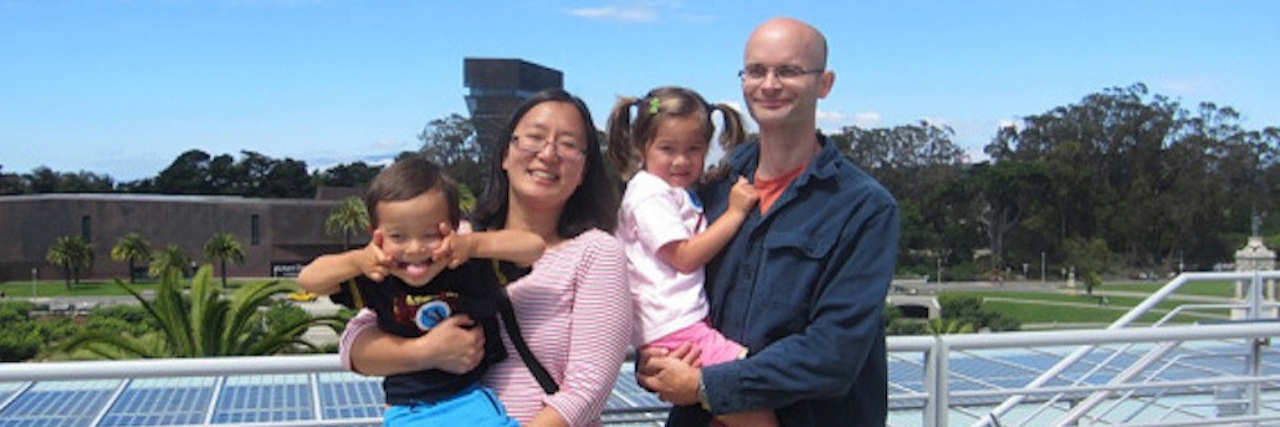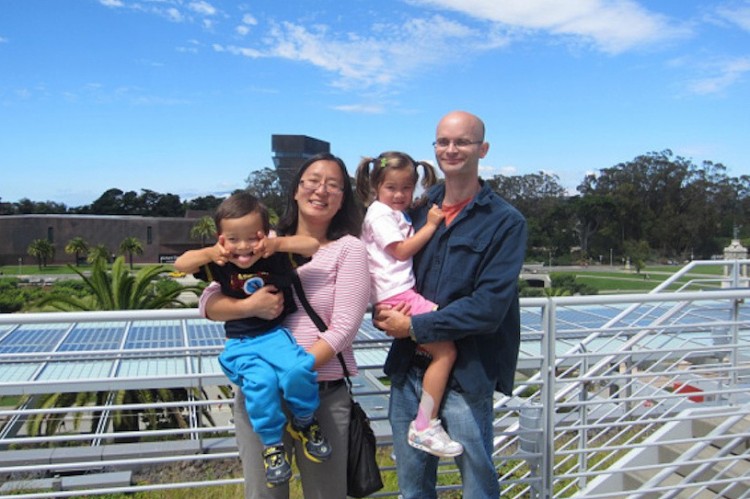In the featured image of this post, we look like a happy family. But this picture doesn’t show even a hint of the deep grief we were experiencing. The only visual indication of our daughter Iris’s condition in the image is the ankle-foot orthotics.
It’s now been nearly two years since her diagnosis. I’ll never forget the day. My husband turned 40, and his job essentially dissolved the same week. When it rains, it pours.
It was an awful birthday and one we will never forget.
In a way, it was convenient. Some of the decisions on how to move forward were made for us. Both parents working full-time was no longer a possibility. The struggle of managing time away from work for all the various therapies and doctors’ appointments came to an end.
Before her diagnosis, we thought our daughter was just a bit clumsy. We thought she had a benign speech issue. We thought physical and speech therapy would suffice. That’s what the doctors said at first. Following her diagnosis, we faced the grim reality of a rare, chronic, incurable and terminal illness called GM1 gangliosidosis.
The kicker: The cause is genetics. Much to our chagrin, Darwin and nature’s game of roulette had their way. The faulty genes lurked within us, her loving parents. The genes were recessive, hidden and dangerous. Illogically, we had an awkward feeling that as carriers, we could or should have known despite no family history of this condition.
I allowed myself to cry as I commuted alone in the car. My husband and I were most comfortable in the presence of our children, where the sole focus was on their immediate needs. The darkest times were those moments of solitude, usually in the evening. Bedtime stories were over. The children were asleep, yet I lay awake.
My mind wandered beyond the present moment. I made the error of permitting myself to imagine an alternate reality.
Two years later, simply put, I don’t go there. Where, you ask? I don’t go to that imagined and nonexistent place without GM1 gangliosidosis. Time, acceptance and even a degree of healing dulls the pain. We cherish the time we do have. We accept our lives and the entire spectrum of experiences involved. We cherish and love our daughter for who she is. We don’t ask, “What if?” We don’t imagine who she might have been without this rare disease. The grief ebbs and flows, punctuated by “normal” milestones and/or regression.
There are many, many hardships in life. It’s really not productive to compare our lives to others’ lives. We may not be able to control all the events in our lives, but we can control our responses. We can choose to advocate. We can choose hope and have resilience.
GM1 gangliosidosis and grief will not consume us, although it is an utterly horrible condition. Simple pleasures abound: a smile, a walk hand-in-hand to the store, a family outing. There is still much to appreciate. There is much to enjoy today.
Today, I still kiss my daughter’s head, hold her hand and cuddle with her. I will continue to have that immense privilege for a time that is not predetermined. No one really knows what the future holds. Real life does not have a script.
Without contrast and without hardship, we would not truly understand or appreciate joy.
Follow this journey on Sweet Iris.


